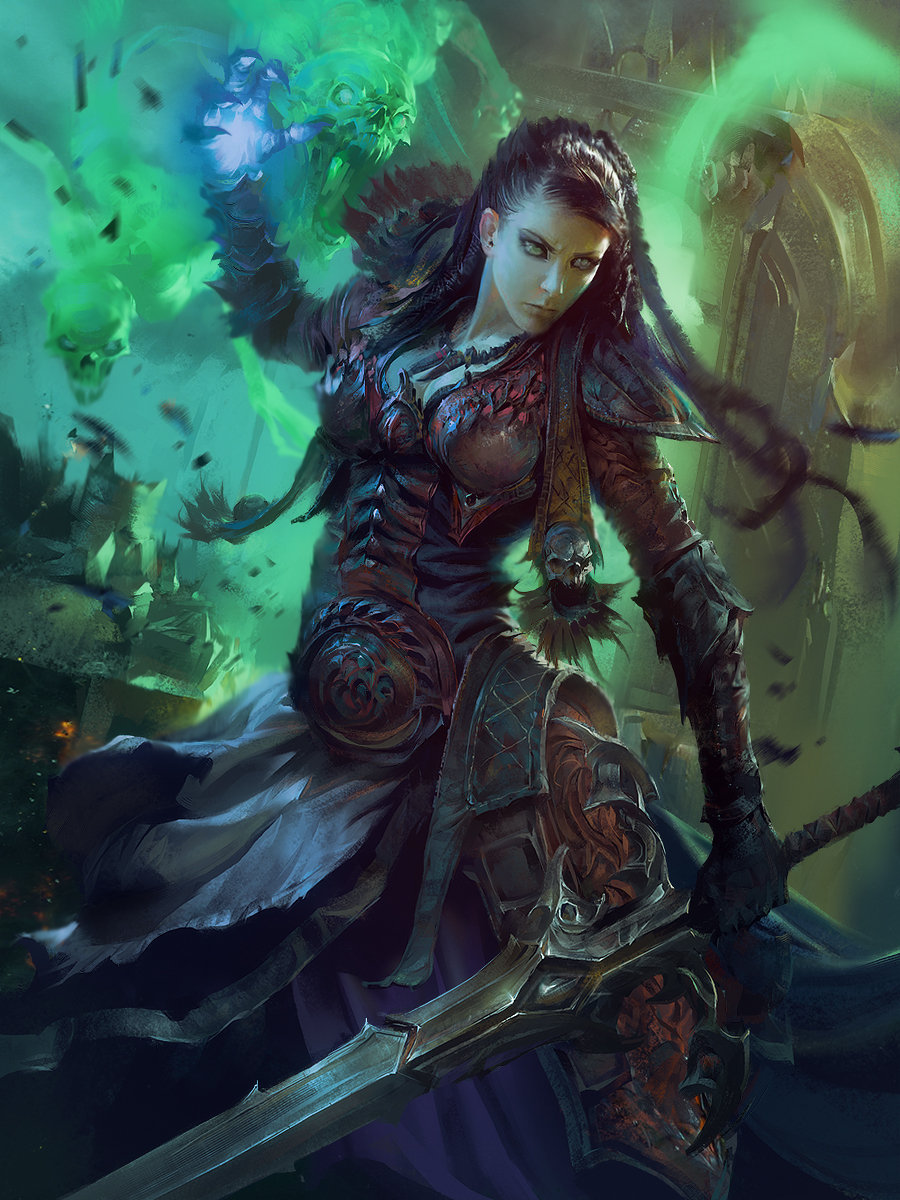
VERSION 1.4 Alpha
The Spellblade
Standing on top the ivory spire of the floating citadel, a high elf warrior fires arcane arrow after arcane arrow towards the giant red dragon breaking through the clouds above.
Jumping off their slick spelljammer and vanishing in thin air, a githyanki raider suddenly reappears next to their unsuspecting victim, ready to claim their next kill.
A grim human, locking their enemy's muscles with arcane poison, raises their sword to finish them off.
Spellblade, Magus, Mage-Knight, Arcane Warrior, Gish — they are known under many different names, but almost every advanced society has developed a tradition of warriors that combine martial arts with arcane prowess.
By Spell and Blade
Spellblades walk a very difficult path that requires extreme dedication and discipline. Not only do they train to become highly skilled in the use of weapons, but simultaneously delve deep into the arcane, studying magic and working of spells, thus merging the disciplines of both fighter and wizard.
Though they achieve neither the martial perfection of the fighter nor the wizard's mastery over the arcane, spellblades develop a unique and highly effective amalgamation of the two. Able to supplement their shortcomings in one area with their skill in the other.
Practice makes Perfect
There comes a point in every spellblade's training, where the countless hours of sparring and study of the arcane arts spark the need to test their skills in true battle. Experienced Spellblades know to look for the signs when a student is ready to test their knowledge and skills in the real world.
Most Spellblades are sent by their teachers on their first mission, which is both an assignment and a final exam. With the successful completion of the mission, the official training ends and the student may join the ranks of his brothers and sisters as a junior Spellblade.
The dangers and mysteries of adventuring make perfect opportunity for a spellblade to test and further develop their skills. Likewise, offering both martial and magical expertise, spellblades are most welcomed in any adventuring company.
Creating a Spellblade
As you build your spellblade, think about two related elements of your character’s background: Where did you get your combat training, and how did you develop your arcane powers? Are you a formal student of a spellblade academy? Were you the squire of an older Mage-Knight, travelling around the countryside? Or are you a rare self-taught savant with magic in your bloodline?
Whatever your background, be aware that you represent a very special individual that embodies the pinnacle of mago-martial prowess.
Quick Build
You can make a spellblade quickly by following these suggestions. First, make Strength or Dexterity your highest ability score, depending on whether you want to focus on melee weapons or on archery (or finesse weapons).
Your next-highest score should be Intelligence to empower your arcane abilities.
Second, choose the soldier background.
Table of Contents
| Topic | Page |
|---|---|
| Class Features | 2 |
| Class Table | 2 |
| Multiclassing | 4 |
| Spellblade Tradtions | 5 |
| Arcane Archer | 5 |
| Arcane Shot Options | 6 |
| Hexblade | 7 |
| Mage-Knight | 8 |
| Mirror Blade | 9 |
| Necromonger | 10 |
| Pact-Blade | 11 |
| Spellbreaker | 12 |
| Spellblade Spell List | 13 |
| New and Revised Spells | 14 |
Class Features
As a spellblade, you gain the following class features.
Hit Points
- Hit Dice: 1d10 per spellblade level
- Hit Points at 1st Level: 10 + your Constitution modifier
- Hit Points at Higher Levels: 1d10 (or 6) + your Constitution modifier per spellblade level after 1st
Proficiencies
- Armor: Light armor, medium armor
- Weapons: Simple weapons, martial weapons
- Tools: None
- Saving Throws: Constitution, Intelligence
- Skills: Choose two skills from Arcana, Athletics, History, Insight, Intimidation, Investigation, Medicine, Persuasion, and Religion
Equipment
You start with the following equipment, in addition to the equipment granted by your background:
- (a) leather armor, (b) chain mail, or (c) scale mail
- (a) a dungeoneer's pack, (b) an explorer’s pack, or
(c) a scholar’s pack - (a) one melee weapon or (b) a ranged weapon and 20 pieces of ammunition
- one melee weapon, a dagger, and a book containing your arcane study
Spellcasting
Your arcane research has given you facility with spells. See chapter 10 for the general rules of spellcasting and chapter 11 for the spellblade spell list.
Cantrips
At 1st level, you know three cantrips of your choice from the spellblade spell list. You learn additional spellblade cantrips of your choice at higher levels, as shown in the Cantrips Known column of the Spellblade table.
Whenever you gain a level in this class, you can replace one cantrip you learned from this Spellcasting feature with another cantrip from the spellblade spell list.
Spell Slots
The Spellblade table shows how many spell slots you have to cast your spells of 1st level and higher. To cast one of these spellblade spells, you must expend a slot of the spell's level or higher. You regain all expended spell slots when you finish a long rest.
For example, if you know the 1st-level spell burning hands and have a 1st-level and a 2nd-level spell slot available, you can cast burning hands using either slot.
– Spell Slots per Spell Level –
The Spellblade
| Level | Proficiency Bonus | Features | Cantrips Known | Spells Known | 1st | 2nd | 3rd | 4th | 5th |
|---|---|---|---|---|---|---|---|---|---|
| 1st | +2 | Spellcasting, Weapon Bond | 3 | 2 | 2 | — | — | — | — |
| 2nd | +2 | Arcane Resonance, Fighting Style | 3 | 3 | 2 | — | — | — | — |
| 3rd | +2 | Battle Focus, Spellblade Tradition | 3 | 4 | 3 | — | — | — | — |
| 4th | +2 | Ability Score Improvement | 3 | 5 | 3 | — | — | — | — |
| 5th | +3 | Extra Attack, | 3 | 6 | 4 | 2 | — | — | — |
| 6th | +3 | Arcane Assault | 3 | 7 | 4 | 2 | — | — | — |
| 7th | +3 | Spellblade Tradition feature | 4 | 8 | 4 | 3 | — | — | — |
| 8th | +3 | Ability Score Improvement | 4 | 9 | 4 | 3 | — | — | — |
| 9th | +4 | — | 4 | 10 | 4 | 3 | 2 | — | — |
| 10th | +4 | Arcane Breach | 4 | 10 | 4 | 3 | 2 | — | — |
| 11th | +4 | Spellblade Tradition feature | 4 | 11 | 4 | 3 | 3 | — | — |
| 12th | +4 | Ability Score Improvement | 4 | 11 | 4 | 3 | 3 | — | — |
| 13th | +5 | — | 4 | 12 | 4 | 3 | 3 | 1 | — |
| 14th | +5 | Spell Siphon | 4 | 12 | 4 | 3 | 3 | 1 | — |
| 15th | +5 | Spellblade Tradition feature | 4 | 13 | 4 | 3 | 3 | 2 | — |
| 16th | +5 | Ability Score Improvement | 4 | 13 | 4 | 3 | 3 | 2 | — |
| 17th | +6 | — | 5 | 14 | 4 | 3 | 3 | 3 | 1 |
| 18th | +6 | Battle Focus Improvement | 5 | 14 | 4 | 3 | 3 | 3 | 1 |
| 19th | +6 | Ability Score Improvement | 5 | 15 | 4 | 3 | 3 | 3 | 2 |
| 20th | +6 | Perfect Resonance | 5 | 15 | 4 | 3 | 3 | 3 | 2 |
Spells Known of 1st Level and Higher
At 1st level, you know two 1st-level spells of your choice from the spellblade spell list.
The Spells Known column of the Spellblade table shows when you learn more spellblade spells of your choice. Each of these spells must be of a level for which you have spell slots. For instance, when you reach 5th level in this class, you can learn one new spell of 1st or 2nd level.
Additionally, when you gain a level in this class, you can choose one of the spellblade spells you know and replace it with another spell from the spellblade spell list, which also must be of a level for which you have spell slots.
Spellcasting Ability
Intelligence is your spellcasting ability for your spellblade spells, since you learn your spells through dedicated study and memorization. You use your Intelligence whenever a spell refers to your spellcasting ability. In addition, you use your Intelligence modifier when setting the saving throw DC for a spellblade spell you cast and when making an attack roll with one.
Spell save DC = 8 + your proficiency bonus +
your Intelligence modifier
Spell attack modifier = your proficiency bonus +
your Intelligence modifier
Ritual Casting
You can cast any spellblade spell you know as a ritual if that spell has the ritual tag.
Spellcasting Focus
You can use an arcane focus (found in chapter 5) or your bonded weapon as a spellcasting focus for your spellblade spells.
Weapon Bond
You have learned a ritual that creates a magical bond between yourself and one weapon. You perform the ritual over the course of 1 hour, which can be done during a short rest, and you must hold the weapon during the entire time.
Once you have bonded a weapon to yourself, you gain the following benefits:
- You can't be disarmed of that weapon unless you are incapacitated.
- You can use a bonus action to summon your bonded weapon into your hand or dismiss it into an extradimensional space.
- Your bonded weapon counts as magical for the purpose of overcoming resistance and immunity to non-magical attacks and damage.
- You can use your bonded weapons as a spellcasting focus for your spellblade spells.
If you attempt to bond with a new weapon, you must break the bond with your currently bonded weapon as part of the same ritual.
Arcane Resonance
Starting at 2nd level, you have learned to hold on to fractions of a spell's arcane energy — letting them resonate within your body to be used for additional effects.
Gaining Resonance
You can gain resonance points in the following ways:
- When you cast a spell using one of your spell slots, you can choose to gain a number of resonance points equal to the spell slot's level.
- When an ally affects you with a spell, you can use your reaction to gain a number of resonance points equal to the spell's level.
- As a bonus action on your turn, you can expend one spell slot and gain a number of resonance points equal to the slot's level.
Holding Resonance
You can never have more resonance points than half your spellblade level (rounded down), and you lose all your current resonance points when you become incapacitated, or you finish a short or long rest.
Resonance Techniques
Starting at 2nd level, you learn two resonance techniques chosen from the following list. Each resonance technique is linked to one of the eight schools of magic.
You learn an additional resonance technique when you reach 5th, 9th, 13th, and 17th level in this class. Whenever you gain a level in this class, you can also replace one of your chosen resonance techniques with another one from the list.
Abjuration. When you take damage, you can use your reaction and expend any number of resonance points to reduce the damage to you by an amount equal to five times the number of resonance points spend.
Alternatively, when you make a saving throw against a spell or magical effect, you can use your reaction to expend any number of resonance points to give yourself a +2 bonus to the save for each point spend in this way. You must use this feature before the DM says whether the roll succeeds or fails.
Conjuration. As an action on your turn, you can expend any number of resonance points to teleport yourself a number of feet to an empty space you can see equal to five times the number of resonance points spend.
Divination. As a bonus action on your turn, you can expend any number of resonance points to give yourself advantage on the next number of attack rolls or saving throws equal to the number of resonance points spend. This benefit lasts until the beginning of your next turn.
Enchantment. As a bonus action of your turn, you can expend 1 resonance point to cast the cause fear or charm person spell without expending a spell slot. If you do the spell doesn't require your concentration but it ends early at the beginning of your next turn.
Evocation. Once per turn when you hit a creature with your bonded weapon, you can expend a number of resonance points up to your proficiency bonus to deal an extra 1d6 force damage to the target for each point spend in this way.
Illusion. Whenever a creature makes an attack roll against you or a creature within 30 feet of you, you can expend 1 resonance point to impose disadvantage on the attack roll.
Alternatively, you can expend 1 resonance point to take the Hide action as a bonus action and gain advantage on the corresponding Dexterity (Stealth) check.
Necromancy. When you hit a creature with your bonded weapon, you can expend 1 resonance point to deal additional necrotic damage equal to your proficiency bonus, and you gain an equal amount of temporary hit points. A creature's resistance, immunity, or vulnerability to necrotic damage also affects the number of temporary hit points you gain.
Transmutation. As a bonus action on your turn, you can either expend 1 resonance point to take the Dash, Disengage, or Use an Object action, or expend 3 resonance points to take the Attack (one weapon attack only) or Dodge action.
Fighting Style
You adopt a particular style of fighting as your specialty. Choose one of the following options. You can't take a Fighting Style option more than once, even if you later get to choose again.
Revised Fighting Styles are optional but recommended.
Archery (revised)
Your ranged attacks ignore half cover and treat three-quarters cover as half cover instead.
Blind
You have blindsight with a range of 10 feet. Within that range, you can effectively see anything that isn’t behind total cover, even if you’re blinded or in darkness. Moreover, you can see an invisible creature within that range, unless the creature successfully hides from you.
Defensive (revised)
former Defense
While you aren't incapacitated, you gain a +1 bonus to AC.
Dueling (revised)
When you are wielding a melee weapon in one hand and no other weapons, you gain a +1 bonus to attack and damage rolls with that weapon.
Great Weapons (revised)
former Great Weapon Fighting
Whenever you roll damage for an attack you make with a two-handed or versatile melee weapon that you are wielding with two hands, you can reroll the weapon's damage dice, but you must use the new roll.
Battle Focus
At 3rd level, you have become an expert at maintaining spell concentration.
You have advantage on Constitution saving throws that you make to maintain your concentration on a spell when you take damage.
Beginning at 18th level, when you fail a Constitution saving throws that you make to maintain your concentration on a spell, you can expend 1 resonance point to succeed instead.
Spellblade Tradition
Also at 3rd level, you choose a spellblade tradition that you strive to emulate in your combat style and arcane technique, all detailed at the end of the class description.
Your choice grants you features at 3rd level and again at 7th, 11th, and 15th level.
Ability Score Improvement
When you reach 4th level, and again at 8th, 12th, 16th, and 19th level, you can increase one ability score of your choice by 2, or you can increase two ability scores of your choice by 1. As normal, you can't increase an ability score above 20 using this feature.
Extra Attack
Beginning at 5th level, you can attack twice, instead of once, whenever you take the Attack action on your turn.
Arcane Assault
At 6th level, you learn how to interweave your spellcasting and your martial prowess.
When you use your action to cast a spell, you can use your bonus action to make a single weapon attack using your bonded weapon.
Arcane Breach
Beginning at 10th level, your bonded weapon strikes can open a hole in a creature’s resistance to your spells.
When you hit a creature with your bonded weapon, that creature has disadvantage on the next saving throw it makes against a spell you cast before the end of your next turn.
Spell Siphon
At 14th level, you can siphon part of the energy of harmful spells cast against you.
When you successfully save against a spell cast against you, you can use your reaction to gain a number of resonance points equal to that spell's level.
Perfect Resonance
At 20th level, you have become attuned to the natural magic of the world.
You no longer lose your current resonance points when you become incapacitated, or when finishing a short or long rest.
In addition, whenever you gain resonance points, you gain one additional point.
Multiclassing
In order to multiclass with the Spellblade, you need the following ability scores, and gain the following proficiencies.
| Ability Score Minimum |
|---|
| Strength 13 or Dexterity 13, and Intelligence 13 |
| Proficiencies Gained |
|---|
| Light armor, medium armor, simple weapons, martial weapons |
| Spellcasting |
|---|
| You add half your spellblade levels (rounded up) to determine your available spell slots. |
Spellblade Tradition
Different spellblades choose different approaches to perfecting their arcane fighting prowess. The spellblade tradition you choose to emulate reflects your approach.
Arcane Archer
An Arcane Archer studies a unique elven method of archery that weaves magic into attacks to produce supernatural effects. Arcane Archers are some of the most elite warriors among the elves. They stand watch over the fringes of elven domains, keeping a keen eye out for trespassers and using magic-infused arrows to defeat monsters and invaders before they can reach elven settlements. Over the centuries, the methods of these elf archers have been learned by members of other races who can also balance arcane aptitude with archery.
While traditionally, Arcane Archers use a shortbow or longbow, any ranged weapon with the ammunition property can be used for their abilities.
Arcane Archer Magic
You learn an additional spell when you reach certain levels in this class, as shown in the Arcane Archer Spells table. Each spell counts as a spellblade spell for you, but it doesn't count against the number of spellblade spells you know.
Arcane Archer Spells
| Spellblade level | Spell |
|---|---|
| 3rd | faerie fire |
| 5th | cordon of arrows |
| 9th | conjure barrage |
| 13th | arcane eye |
| 17th | swift quiver |
Arcane Shot
At 3rd level, you learn to unleash special magical effects with some of your shots. When you gain this feature, you learn two Arcane Shot options of your choice (see "Arcane Shot Options" below).
In addition, whenever you finish a long rest, you can choose to replace one of your Arcane Shot options within another one from the list.
Once per turn when you fire a missile with a bonded ranged weapon, you can apply one of your Arcane Shot options to that missile. You decide to use the option when the missile hits a creature, unless the option doesn't involve an attack roll.
You can use this feature twice, and you regain all expended uses when you finish a short or long rest.
Alternatively, you can expend 1 resonance point to apply an Arcane Shot option you have learned to your attack. If you do, you don't expend a use of this feature.
You gain additional uses and learn additional Arcane Shot options of your choice when you reach certain levels in this class, as shown in the table below.
| Fighter Level |
Arcane Shot Uses |
Arcane Shot Options known |
|---|---|---|
| 3rd | 2 | 2 |
| 7th | 3 | 4 |
| 11th | 4 | 6 |
| 15th | 5 | 8 |
Careful Eye
Starting at 7th level, you excel at picking out hidden enemies and other threats.
You can take the Search action as a bonus action on your turn.
In addition, you gain proficiency in the Perception skill. If you are already proficient in it, you gain Expertise with it instead, doubling your proficiency bonus for any ability check you make that uses Perception.
Curving Shot
Also at 7th level, you learn how to direct an errant arrow toward a new target.
When you miss with a ranged attack roll using your bonded weapon, you can use a bonus action to reroll the attack roll against a different target within 60 feet of the original target.
Empowered Shots
At 11th level, your shots are empowered with eldritch energy.
Each of your Arcane Shot options gains an improved effect as stated in its description.
Ever-Ready Shot
Starting at 15th level, your magical archery is available whenever battle starts.
If you roll initiative and have no uses of Arcane Shot remaining, you regain one use of it.
Arcane Shot Options
The Arcane Shot feature lets you choose options for it at certain levels. The options are presented here in alphabetical order. They are all magical effects, and each one is associated with one of the schools of magic.
Banishing Shot. You use abjuration magic to try to temporarily banish your target to a harmless location in the Feywild. The creature hit by the missile must also succeed on a Charisma saving throw or be banished. While banished in this way, the target’s speed is 0, and it is incapacitated. At the end of its next turn, the target reappears in the Space it vacated or in the nearest unoccupied space if that space is occupied.
After you reach 11th level in this class, a target also takes 2d6 force damage when the missile hits it.
Beguiling Shot. Your enchantment magic causes this missile to temporarily beguile its target. The creature hit by the missile takes an extra 2d6 psychic damage, and choose one of your allies within 30 feet of the target. The target must succeed on a Wisdom saving throw, or it is charmed by the chosen ally until the start of your next turn. This effect ends early if the chosen ally attacks the charmed target, deals damage to it, or forces it to make a saving throw.
The psychic damage increases to 4d6 when you reach 11th level in this class.
Bursting Shot. You imbue your missile with force energy drawn from the school of evocation. The energy detonates after your attack. Immediately after the missile hits the creature, the target and all other creatures within 10 feet of it take 2d6 force damage each.
The force damage increases to 4d6 when you reach 11th level in this class.
Enfeebling Shot. You weave necromantic magic into your missile. The creature hit by the missile takes an extra 2d6 necrotic damage. The target must also succeed on a Constitution saving throw, or the damage dealt by its weapon attacks is halved until the start of your next turn.
The necrotic damage increases to 4d6 when you reach 11th level in this class.
Grasping Shot. When this missile strikes its target, conjuration magic creates grasping, poisonous brambles, which wrap around the target. The creature hit by the missile takes an extra 2d6 poison damage, its speed is reduced by 10 feet, and it takes 2d6 slashing damage the first time on each turn it moves 1 foot or more without teleporting. The target or any creature that can reach it can use its action to remove the brambles with a successful Strength (Athletics) check against your spell save DC. Otherwise, the brambles last for 1 minute or until you use this option again.
The poison damage and slashing damage both increase to 4d6 when you reach 11th level in this class.
Piercing Shot. You use transmutation magic to give your missile an ethereal quality. When you use this option, you don't make an attack roll for the attack. Instead, the missile shoots forward in a line, which is 1 foot wide and 30 feet long, before disappearing. The missile passes harmlessly through objects, ignoring cover. Each creature in that line must make a Dexterity saving throw against your spell save DC. On a failed save, a creature takes damage as if it were hit by the missile, plus an extra 1d6 piercing damage. On a successful save, a target takes half as much damage.
The piercing damage increases to 2d6 when you reach 11th level in this class.
Seeking Shot. Using divination magic, you grant your missile the ability to seek out a target. When you use this option, you don't make an attack roll for the attack. Instead, choose one creature you have seen in the past minute. The missile flies toward that creature, moving around corners if necessary and ignoring three-quarters cover and half cover. If the target is within the weapon’s range and there is a path large enough for the missile to travel to the target, the target must make a Dexterity saving throw against your spell save DC. Otherwise, the missile disappears after traveling as far as it can. On a failed save, the target takes damage as if it were hit by the missile, plus an extra 1d6 force damage, and you learn the target’s current location. On a successful save, the target takes half as much damage, and you don't learn its location.
The force damage increases to 2d6 when you reach 11th level in this class.
Shadow Shot. You weave illusion magic into your missile, causing it to occlude your fees vision with shadows. The creature hit by the missile takes an extra 2d6 psychic damage, and it must succeed on a Wisdom saving throw or be unable to see anything farther than 5 feet away until the start of your next turn.
The psychic damage increases to 4d6 when you reach 11th level in this class.
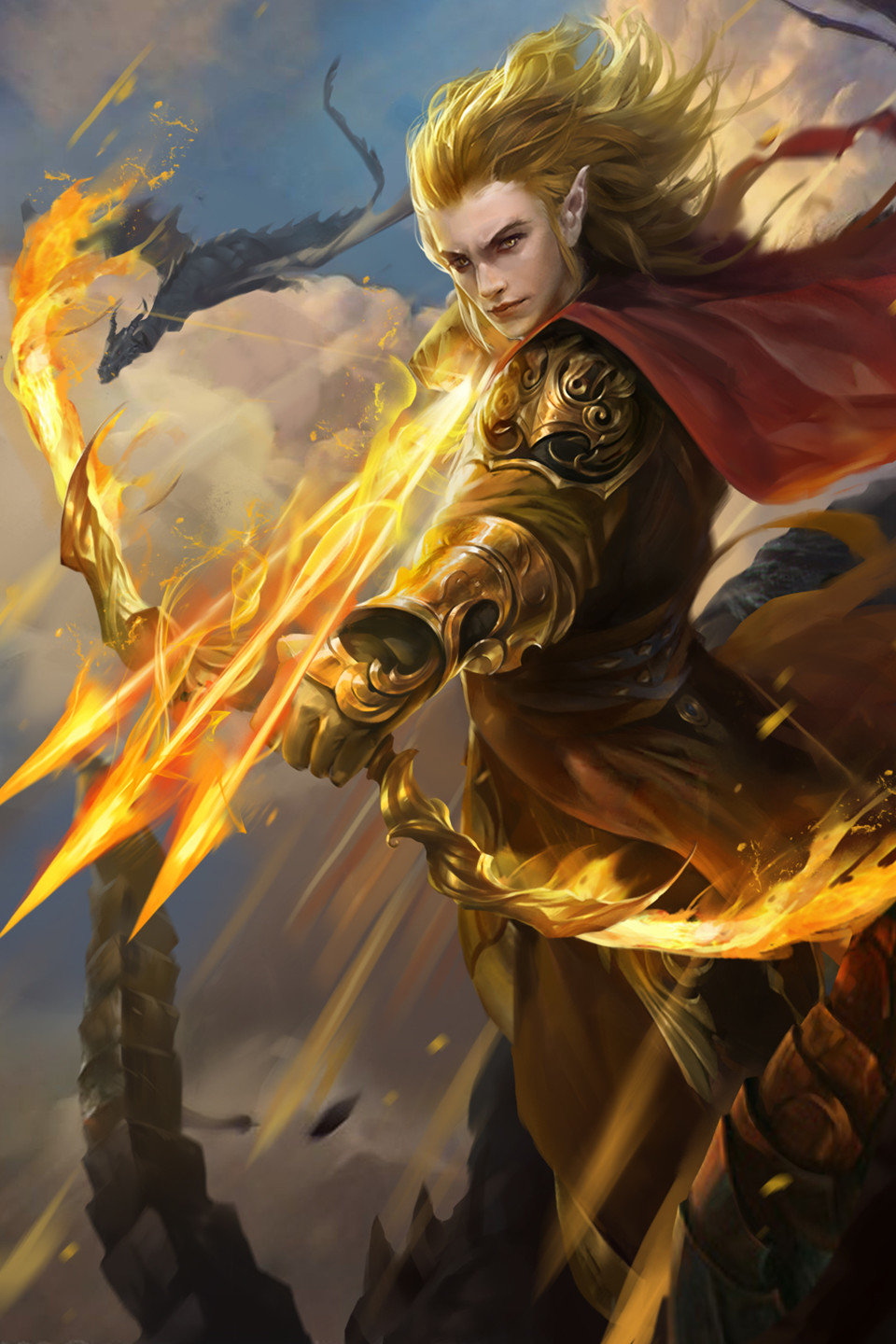
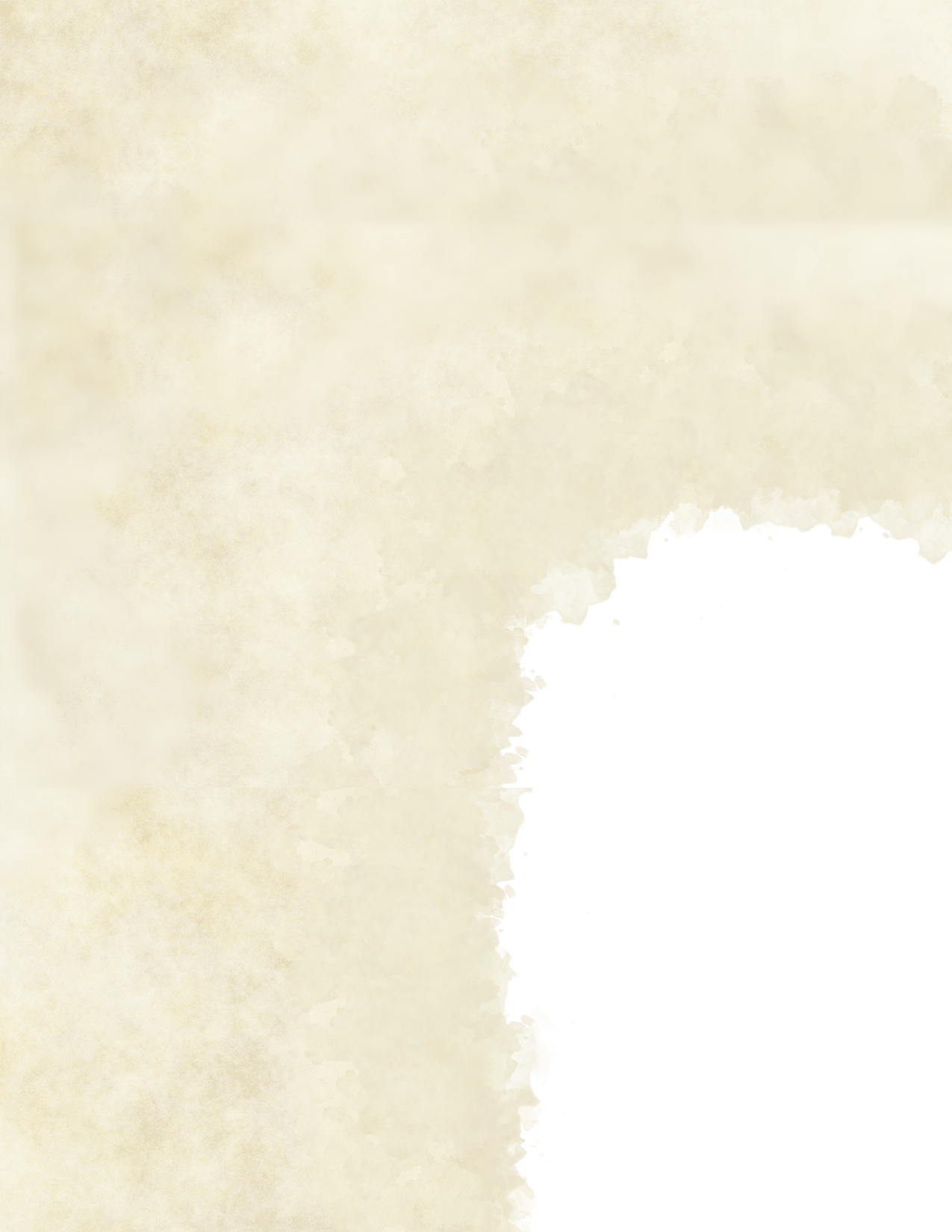
Hexblade
Hexblades use insidious enchantments to confuse and control their enemies and vicious curses to debilitate them.
Hexblades are terrible foes that know how to turn ally against ally.
Hexblade Magic
You learn an additional spell when you reach certain levels in this class, as shown in the Hexblade Spells table. Each spell counts as a spellblade spell for you, but it doesn't count against the number of spellblade spells you know.
Hexblade Spells
| Spellblade level | Spell |
|---|---|
| 3rd | charm person |
| 5th | phantasmal force |
| 9th | bestow curse |
| 13th | charm monster |
| 17th | dominate person |
Battle-Charm
Starting at 3rd level, you can charm creatures in the middle of combat.
When you try to charm a creature using a spell or ability, the target doesn't gain advantage on the saving throw if you or your companions are fighting it.
Curse Specialist
Also beginning at 3rd level, you can weave insidious magic into your spells.
When a creature that is affected by one of your spells makes and attack roll, ability check, or saving throw, you can use your reaction to impose disadvantage on that roll.
You can use this feature a number of times equal to your proficiency bonus, and you regain all expended uses of it when you finish a long rest.
Fortified Mind
At 7th level, you have fortified your mind and soul against harmful intrusion.
You have resistance to psychic damage and advantage on all Intelligence, Wisdom, and Charisma saving throws.
Use the Soulmonger Patron instead of the Hexblade Patron when playing with this subclass.
Psychic Disruption
At 11th level, your combined spells and attacks create a psychic disruption within their victims.
Once on each of your turns, when you hit a creature that is affected by one of your spells with your bonded weapon, the attack deals an additional 1d8 psychic damage and the target must make a Charisma saving throw against your spell save DC. On a failure, it has disadvantage on its next attack roll, ability check, or saving throw made before the end of its next turn.
Beguiling Defenses
At 15th level, you have learned how to turn the mind-affecting magic of your enemies against them.
You are immune to being charmed, and when another creature attempts to charm you, you can use your reaction to attempt to turn the charm back on that creature. The creature must succeed on a Charisma saving throw against your spell save DC or be charmed by you for 1 minute or until the creature takes any damage.
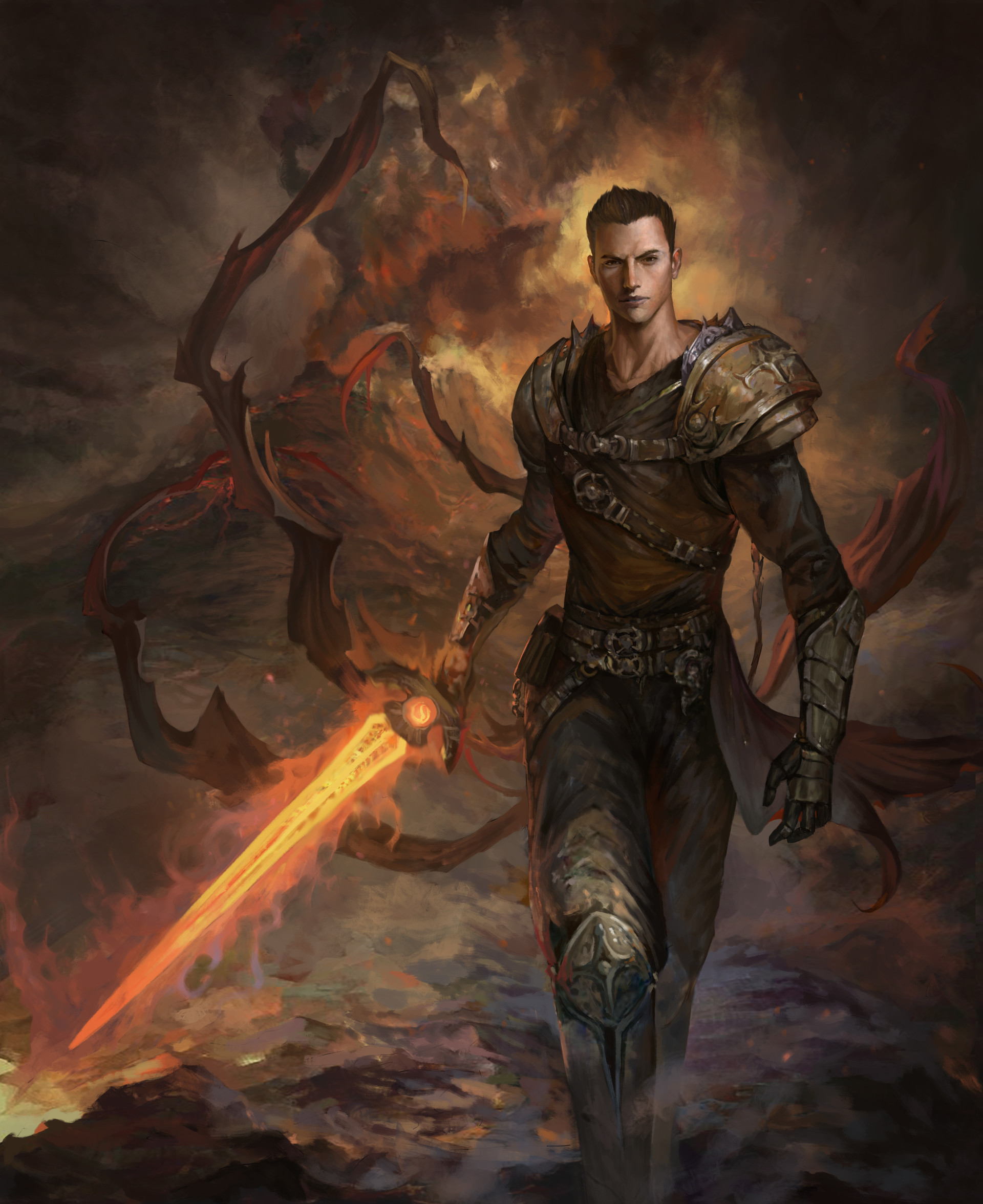

Mage-Knight
Member of an order of arcane knights. Loyal to a kingdom or an independent order, Mage-Knights are exemplars of honor and mago-martial prowess. They are expected to step into the thick of battle and remain steadfast against any enemy they encounter.
Mage-Knights of high standing are expected to hold themselves to a higher standard and to conduct themselves with grace and dignity.
Mage-Knight Magic
You learn an additional spell when you reach certain levels in this class, as shown in the Mage-Knight Spells table. Each spell counts as a spellblade spell for you, but it doesn't count against the number of spellblade spells you know.
Mage-Knight Spells
| Spellblade level | Spell |
|---|---|
| 3rd | shield |
| 5th | warding wind |
| 9th | protection from energy |
| 13th | death ward |
| 17th | wall of force |
Arcane Armor
Starting at 3rd level, you can bond to any one set of armor in addition to your bonded weapons.
Your bonded armor bestows the following benefits while you wear it:
- You are proficient with your bonded armor.
- You can don or doff the armor as a bonus action. When you don the armor, it magically appears on your body. When you doff the armor, you can choose to shunt it into an extradimensional space or dropping it to the ground.
In addition, you can choose one Arcane Armor Property from the list below. You can choose an additional property when you reach 7th, 11th, and 15th level in this class.
Whenever you finish a long rest, you can exchange one of your chosen Arcane Armor Properties for another one on the list.
Diplomatic Training
As a Mage-Knight you are not only trained as a warrior but also as an envoy and diplomat.
At 3rd level, you gain proficiency in one of the following skills of your choice: History, Insight, Intimidation, Persuasion, or Religion.
Warding Aura
At 7th level, you have learned to weave abjuration magic into an incoming attack to lessen future impacts.
When you take damage from a spell or attack while wearing your bonded armor, you can use your reaction to gain resistance to all of the spell's or attack's damage types for 1 minute or until you no longer wear your bonded armor or use this feature again. You gain the resistances after the triggering damage.
You can use this feature a number of times equal to your proficiency bonus, and you regain all expended uses of it when you finish a long rest.
Arcane Spike
At 11th level, you learned how to punish attackers with raw magical energy.
Once per turn, when a creature hits you with a melee attack while you are wearing your bonded armor, it takes 1d6 force damage.
Eldritch Protection
At 15th level, you weave lifesaving abjuration magic into your armor.
Whenever you fail a death saving throw while wearing your bonded armor, you can choose to succeed instead.
In addition, the first time you would drop to 0 hit points as a result of taking damage while wearing your bonded armor, you instead drop to 1 hit point. Once used, you can't do so again until you finish a short or long rest.
Arcane Armor Properties
You can choose one property at 3rd, 7th, 11th, and 15th level. While you are wearing your bonded armor, you gain the chosen benefits.
Empowered. While wearing the armor you have advantage on Strength checks and saving throws, and the armor loses its Strength requirements (if it has any).
Glamour. You can use a bonus action to have the armor assume the appearance of any other kind of armor or clothing. You decide what it looks like, including color, style, and accessories, but the armor retains its normal bulk and weight. The illusory appearance lasts until you use this property again or remove the armor.
Protective. The armor gains a +1 bonus to its AC, unless it is a magic armor that already has such a bonus.
Silenced. You gain advantage on your Dexterity (Stealth) checks. If the armor normally imposes disadvantage on Dexterity (Stealth) checks, both effects cancel each other out.
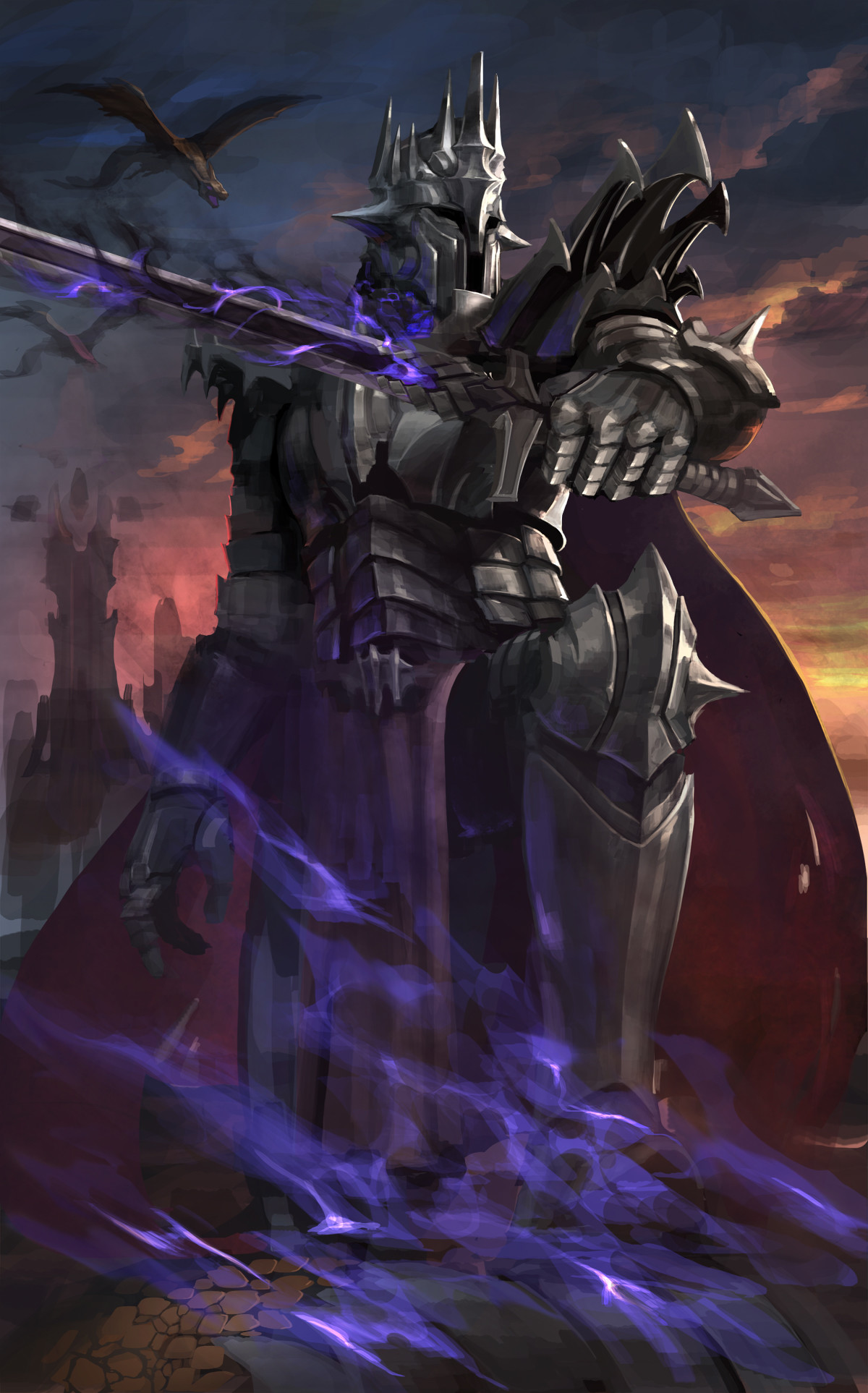
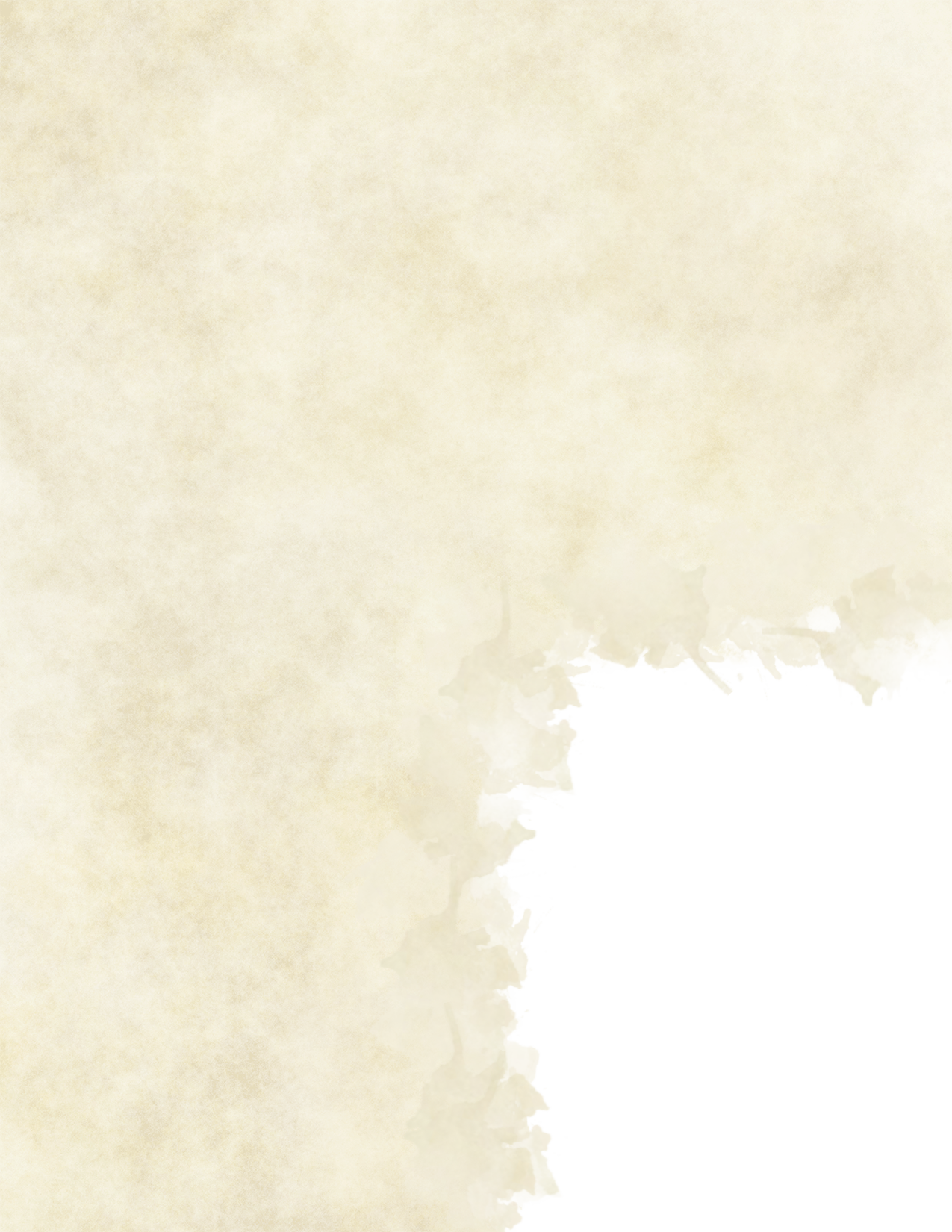
Mirror Blade
Mirror blades constantly confuse their enemies with a combination of conjuration and illusion magic by creating duplicates of themselves while simultaneously using invisibility and teleportation magic to hide their true location.
Mirror Blade Magic
You learn an additional spell when you reach certain levels in this class, as shown in the Mirror Blade Spells table. Each spell counts as a spellblade spell for you, but it doesn't count against the number of spellblade spells you know.
Mirror Blade Spells
| Spellblade level | Spell |
|---|---|
| 3rd | color spray |
| 5th | invisibility |
| 9th | blink |
| 13th | greater invisibility |
| 17th | farstep |
Battle Mirage
Beginning at 3rd level, you can conjure an illusory duplicate of yourself.
As an action, you create a near perfect illusion of yourself in an unoccupied space that you can see within 30 feet of you.
The mirage lasts for 1 minute, but it ends early if you dismiss it (no action required), you're unconscious, it is more than 60 feet away from you at any time, or you use this feature again.
On your turn, you can move the mirage up to 30 feet to a place you can see (no action required).
Additionally, as an action, you can shift your senses into your mirage until you use a bonus action to end the effect. During this time, you are deaf and blind with regard to your own senses, but you can use your own senses as if you were standing in your mirage's space.
While your mirage is being used in this way, it can be up to 1,000 feet away from you without ending early.
Mirror Blur
Also at 3rd level, you can use your battle mirage to confuse your enemies and protect yourself.
While your battle mirage is within 5 feet of you, you can use a bonus action on your turn to give creatures disadvantage on their attack rolls against you until the beginning of your next turn.
An attacker is immune to this effect if it doesn't rely on sight, as with blindsight, or can see through illusions, as with truesight.
You can use this feature a number of times equal to your proficiency bonus, and you regain all expended uses of it when you finish a long rest.
Mirror Step
Beginning at 7th level, you can switch places with your battle mirage in an instant.
As a bonus action, you can teleport, magically swapping places with your battle mirage.
A creature won't notice the switch unless their passive Wisdom (Perception) score is equal to or greater than your spell save DC, or if it doesn't rely on sight or can see through illusions.
Alternatively, as a reaction to a creature attacking you, you can teleport, magically swapping places with your battle mirage. If you do, the attack automatically misses and your battle mirage dissipates.
Quickened Illusions
Also at 7th level, you have learned how to quickly weave illusions in the heat of battle.
When you cast an illusion spell that has a casting time of 1 action, you can expend a number of resonance points equal to the spell's level to change the casting time to 1 bonus action for this casting.
Mirror Assault
At 11th level, you weave psychic energy into your mirage to make it semi-physical and use it to harrow your enemies.
When both you and your battle mirage are within 5 feet of a creature, you can use a bonus action to gain advantage on your attack rolls against that creature and your attacks deal an additional 1d8 psychic damage.
This effect lasts until the beginning of your next turn.
Mirror Mirror
At 15th level, you can create multiple mirages at the same time.
You can create a Battle Mirage as a bonus action, and whenever you create a new mirage, your existing mirages no longer dissipate.
On your turn, you can move or dismiss your mirages independently (no action required).
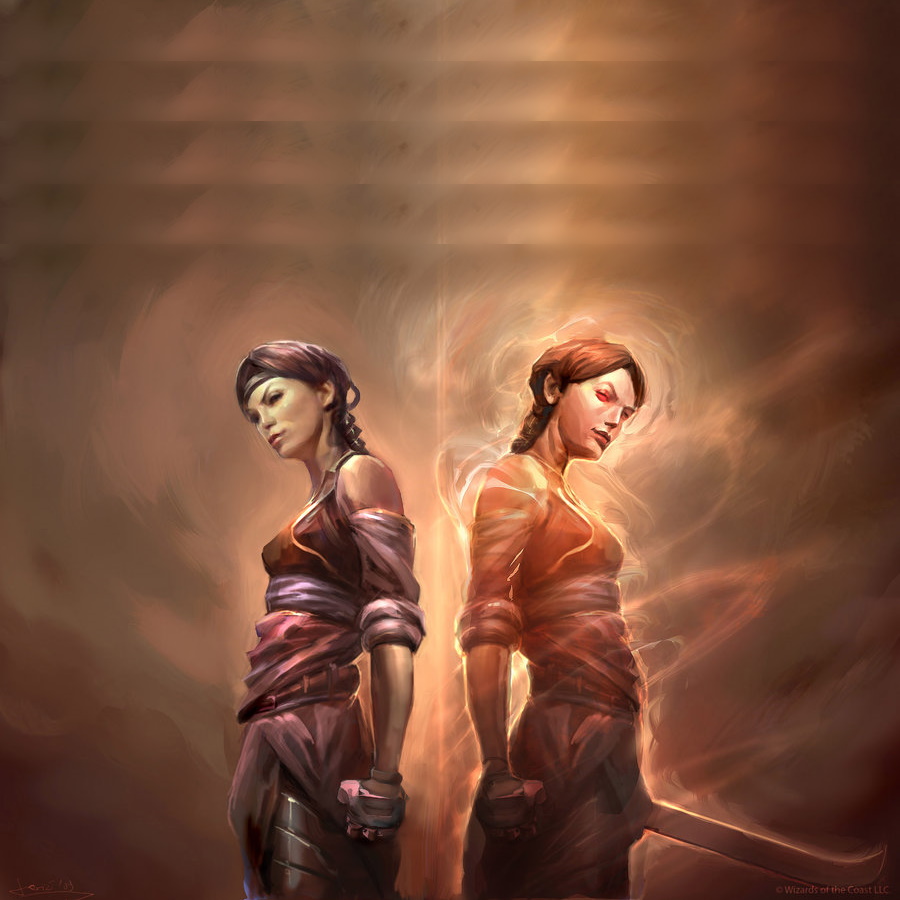
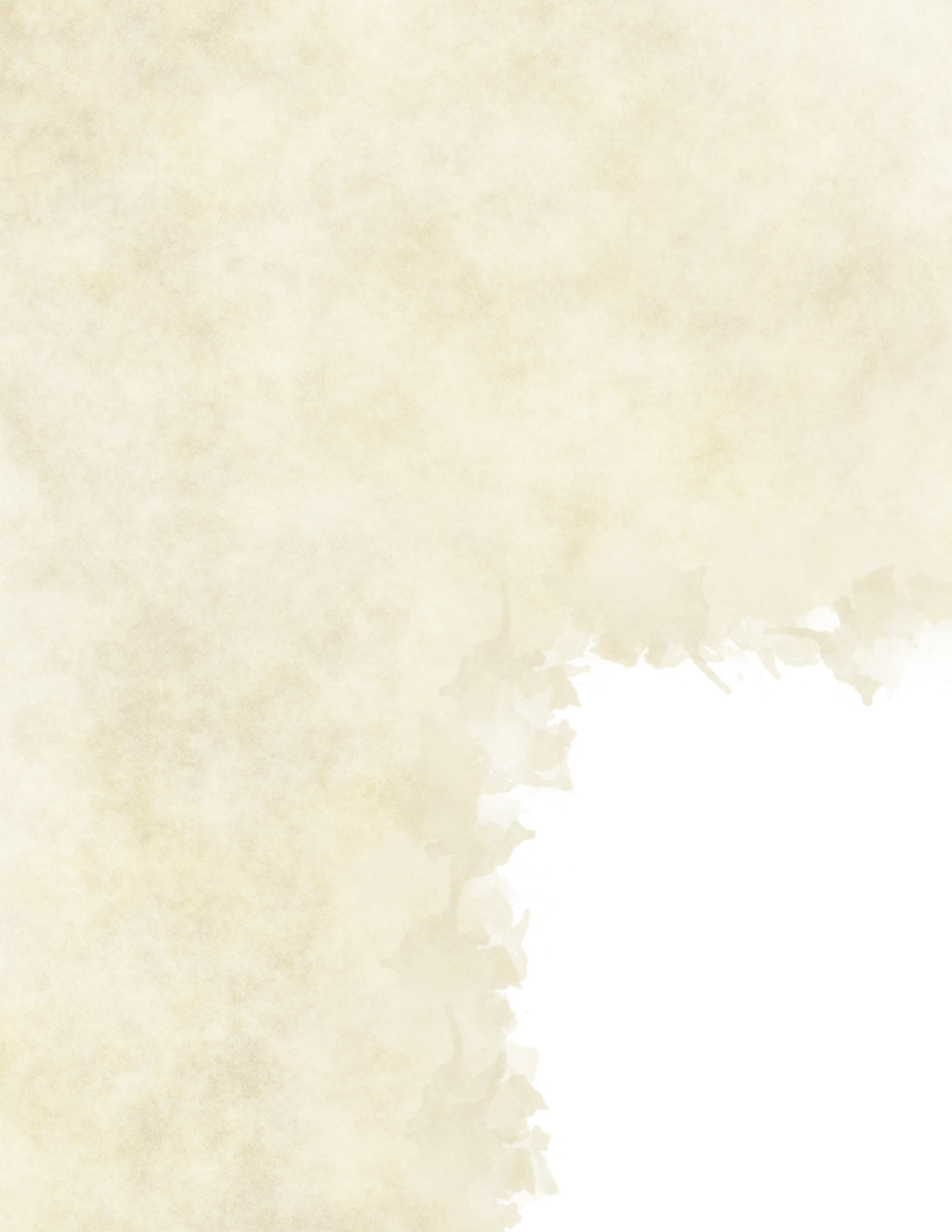
Necromonger
Sometimes called Death Knights — Necromongers employ necromancy to instill fear and terror in their enemies and siphon their life energy to empower themselves in battle.
Necromonger Magic
You learn an additional spell when you reach certain levels in this class, as shown in the Necromonger Spells table. Each spell counts as a spellblade spell for you, but it doesn't count against the number of spellblade spells you know.
Necromonger Spells
| Spellblade level | Spell |
|---|---|
| 3rd | cause fear |
| 5th | ray of enfeeblement |
| 9th | vampiric touch |
| 13th | shadow of moil |
| 17th | negative energy flood |
Cunning Tyrant
At 3rd level, you have learned how to instill fear not only by spell but with words as well.
You gain proficiency in the Intimidation skill. If you are already proficient in it, you gain Expertise with it instead, doubling your proficiency bonus for any ability check you make that uses Intimidation.
In addition, you can add your Intelligence modifier to your Charisma (Intimidation) checks.
Fear is the Mind-Killer
Also at 3rd level, you have conquered your own fears and know how to instill true terror in others.
You can no longer be frightened.
In addition, creatures frightened by your spells or abilities have disadvantage on all Intelligence, Wisdom, and Charisma saving throws, while the source of their fear is within line of sight.
Defy Death
Beginning at 7th level, you have spent so much time dealing with the forces of death that you have become inured to some of their worst effects.
You have resistance to necrotic damage, and your hit point maximum can't be reduced.
In addition, you can add your proficiency bonus to your death saving throws.
Drain Life
Starting at 11th level, you empower your weapon strikes with life draining necromancy.
Once per turn, when you hit a creature with your bonded weapon, you can deal an additional 1d8 necrotic damage and heal an equal amount of lost hit points.
A creature's resistance, immunity, or vulnerability to necrotic damage also affects the number of hit points you regain.
Standing at Death's Door
At 15th level, you have learned how to use your magic to keep you standing at death's door.
Whenever you take damage that would reduce you to 0 hit points, you can use your reaction and expend one spell slot to gain a number of temporary hit points equal to five times the slot level expended. You gain these temporary hit points immediately before suffering the triggering damage.

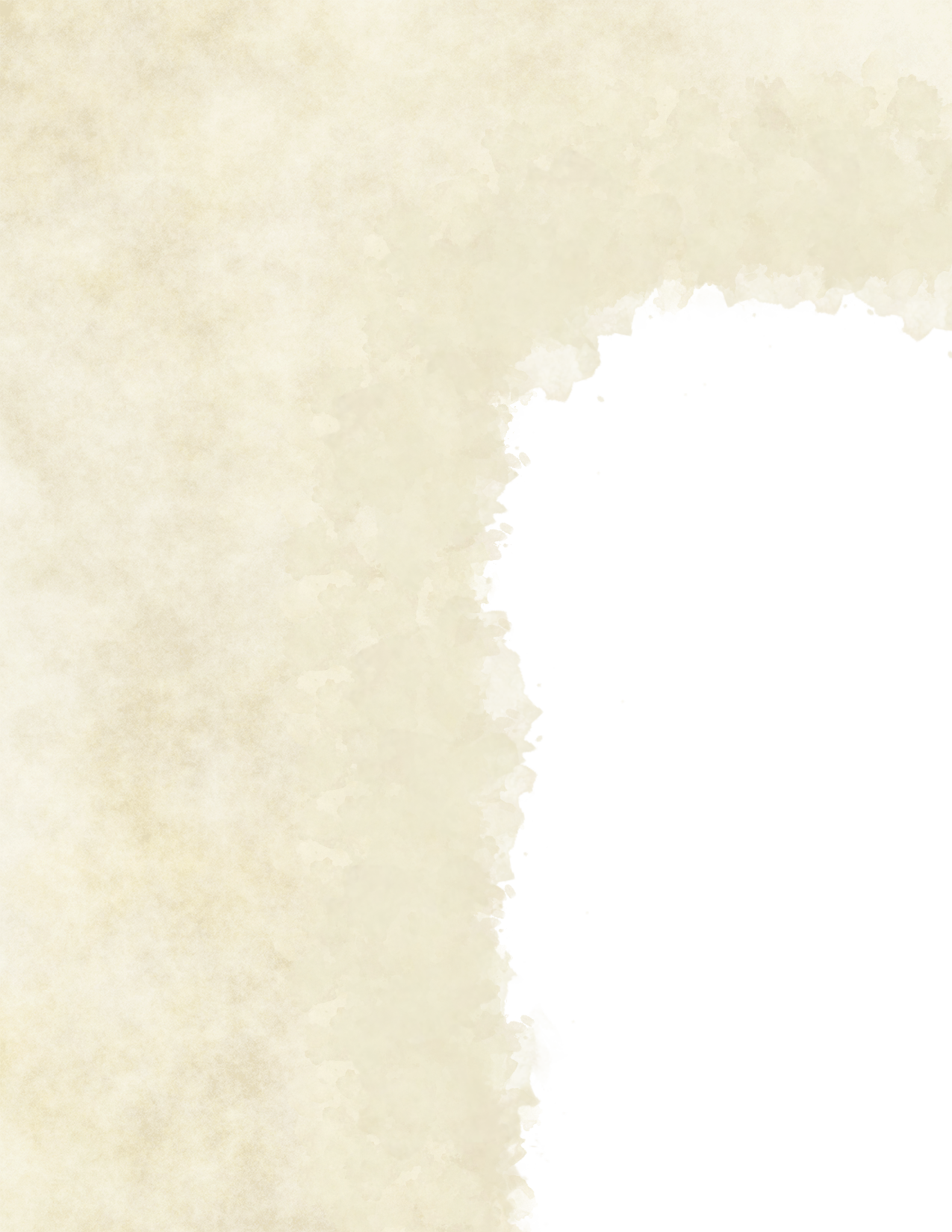
Pact-Blade
The beings that serve as patrons for some spellblades are mighty inhabitants of other planes of existence — not gods, but almost godlike in their power. Various patrons give these so-called pact-blades access to different powers and invocations, and expect significant favors in return. Some patrons collect pact-blades, doling out mystic knowledge relatively freely or boasting of their ability to bind mortals to their will. Other patrons bestow their power only grudgingly, and might make a pact with only one pact-blade. Pact-Blades who serve the same patron might view each other as allies, siblings, or rivals.
Angering your patron can be dangerous. They cannot take away what they have taught you (i.e. your spellcasting capabilities or spells known), however they can withhold the powers they are lending you or let them behave in unexpected ways (i.e. your Pact Boons).
Otherworldly Patron
When you choose this tradition at 3rd level, choose one Patron from the list of Warlock Patrons. You gain additional spells and features as described by the Pact-Blade Magic and Pact Boons features.
Pact-Blade Magic
You learn an additional spell when you reach certain levels in this class.
At 3rd level, you can choose one of the 1st level spells listed in the Expanded Spell List of your chosen patron.
You can choose additional spells from the list when you gain higher levels in this class. Choose one 2nd level spell at 5th level, one 3rd level spell at 9th level, one 4th level spell at 13th level, and one 5th level spell at 17th level.
Each spell counts as a spellblade spell for you, but it doesn't count against the number of spellblade spells you know.
Pact Boons
You gain the patron's listed features normally granted at 1st level — excluding the Expanded Spell List (see Pact-Blade Magic above) — using your spellblade level in place of the warlock level as well as your proficiency bonus in place of your Charisma modifier for your Patron's features. You gain additional patron features at 7th, 11th, and 15th level.
Use the Soulmonger Patron instead of the Hexblade Patron when playing with this subclass.
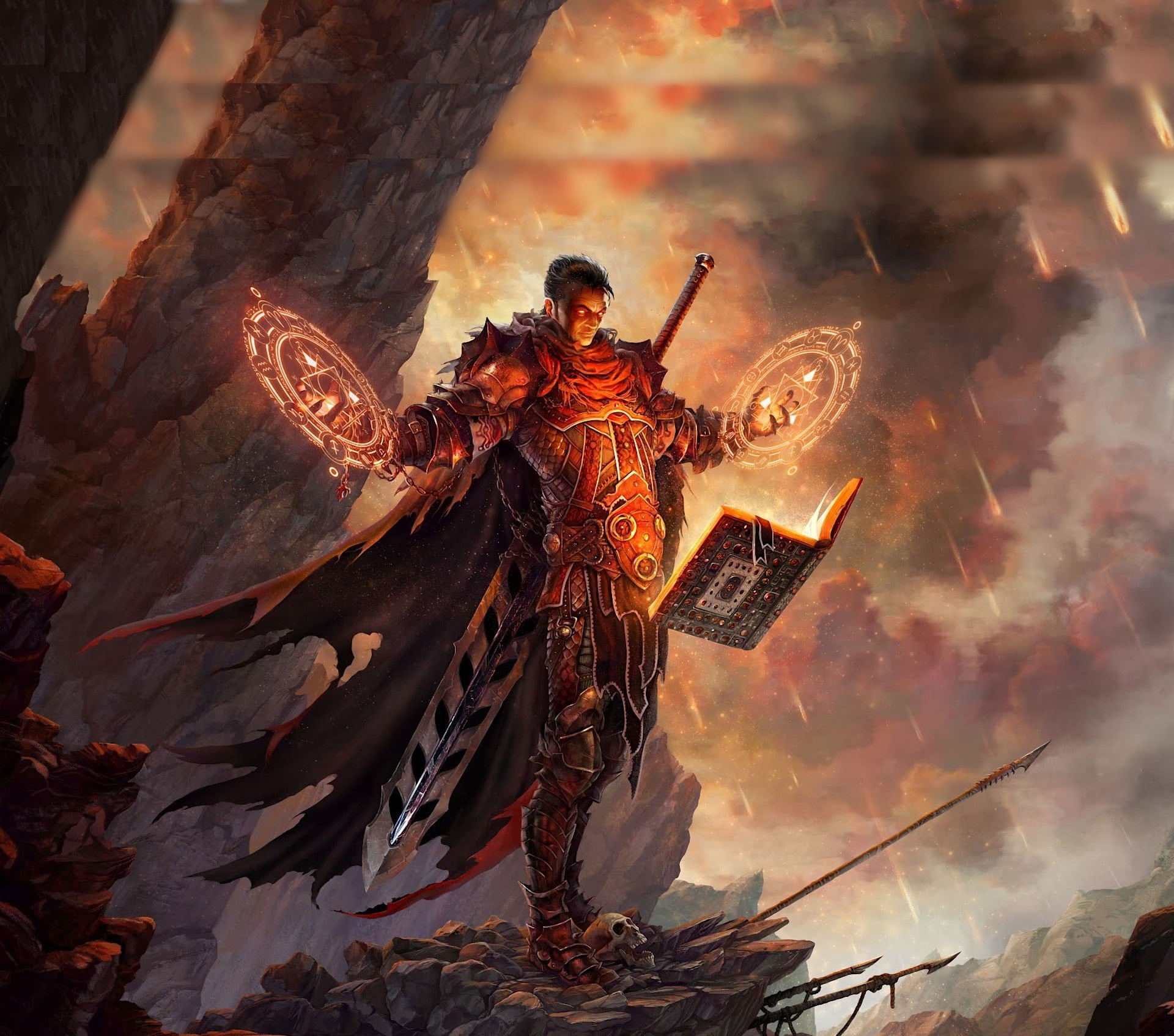

Spellbreaker
Spellbreakers are the first and last line of defense against rogue wizards, wicked witches and other dangerous spellcasters. Spellbreakers are specificially trained to take on such dangerous foes and how to resist their arcane powers. In war times, spellbreakers are also deployed as special forces, tasked to confront and take out enemy spellcasters.
Spellbreaker Magic
You learn an additional spell when you reach certain levels in this class, as shown in the Spellbreaker Spells table. Each spell counts as a spellblade spell for you, but it doesn't count against the number of spellblade spells you know.
Spellbreaker Spells
| Spellblade level | Spell |
|---|---|
| 3rd | detect magic |
| 5th | see invisibility |
| 9th | dispel magic |
| 13th | otiluke’s resilient sphere |
| 17th | circle of power |
No Rest for the Wicked
At 3rd level, you have an innate sense to detect magic not only in items but also in creatures.
While concentrating on the detect magic spell, you can use an action and focus your senses onto one creature. If you do, you learn if that creature can cast any spells, as well as its spellcaster level or highest spell slot level.
Mage Slayer
Also at 3rd level, you have learned how to exploit a spellcaster's weaknesses.
When a creature casts a spell, you can use your reaction to make a melee weapon attack against that creature.
In addition, when you damage a creature that is concentrating on a spell, that creature has disadvantage on the saving throw it makes to maintain its concentration.
Spell Resistance
At 7th level, you have become almost impervious to magical harm.
You have advantage on saving throws against spells and you gain resistance against the damage dealt by spells.
Magnetic Resonance
Also starting at 7th level, you can use arcane resonance to redirect spells to yourself.
When you are within 20 feet of a creature that is being targeted by a spell, you can use your reaction and expend 1 resonance point to become one of the spell's targets instead of that creature.
You can't use this feature if you are already a target of the same spell, and you would suffer no additional effect if targeted twice.
Example: You could draw additional magic missiles or scorching rays upon you, but not suffer the bane spell twice.
Mana Burn
At 11th level, your strikes can burn the magic from your eldritch foes.
Whenever you hit a creature with your bonded weapon, and that creature possesses the ability to cast spells, you deal additional psychic damage equal to your proficiency bonus.
Once per turn, when you hit a creature with your bonded weapon, you can force that creature to make a Constitution saving throw against half the damage taken. On a failure, the creature loses its highest spell slot of a level up to the damage taken divided by 5.
Example: When suffering 17 points of damage, the target would lose its highest spell slot of up to 3rd level.
Disruptive Resonance
Also at 11th level, you have learned to use resonance to disrupt enemy spells.
When you cast the counterspell or dispel magic spell, you can spend 1 resonance point to gain advantage on the corresponding spellcasting ability check.
Arcane Backlash
Also at 15th level, you can trigger harmful feedback resonance into an enemy caster.
Whenever you successfully save against a spell, you can deal psychic damage to the spell's caster equal to five times the spell's level.
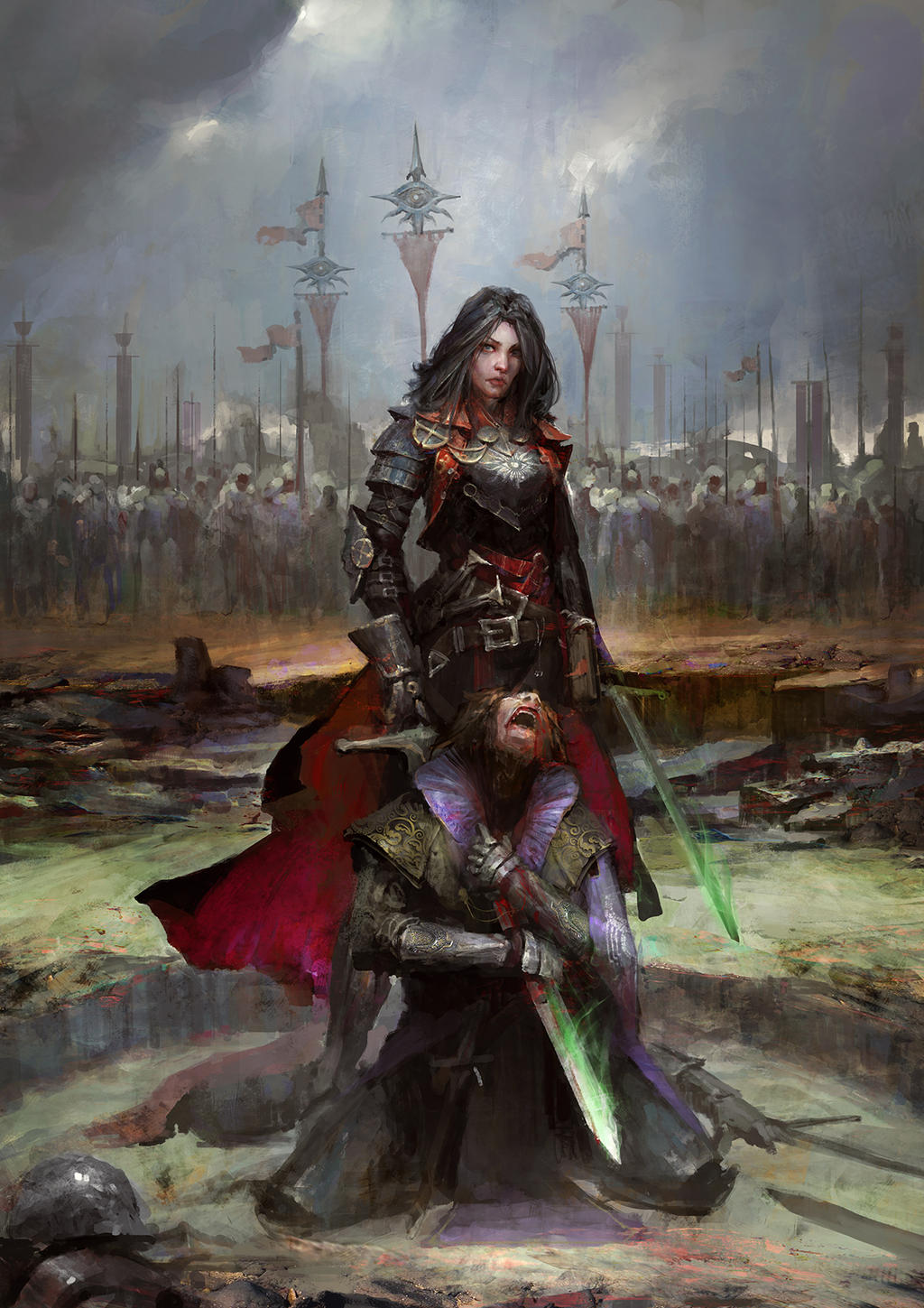

Spellblade Spells
Cantrips (0 Level)
- Acid Splash
- Blade Ward
- Booming Blade
- Chill Touch
- Control Flames
- Create Bonfire
- Dancing Lights
- Fire Bolt
- Friends
- Frostbite
- Gust
- Green-Flame Blade
- Infestation
- Light
- Lightning Lure
- Mage Hand
- Mending
- Message
- Mind Sliver
- Minor Illusion
- Mold Earth
- Poison Spray
- Prestidigitation
- Ray of Frost
- Shape Water
- Shocking Grasp
- Swordburst
- Thunderclap
- Toll the Dead
- True Strike
- Vicious Mockery
1st Level
- Absorb Elements
- Alarm
- Armor of Agathys
- Bane
- Burning Hands
- Catapult
- Cause Fear
- Chaos Bolt
- Chromatic Orb
- Color Spray
- Command
- Compelled Duel
- Comprehend Languages
- Detect Evil and Good
- Detect Magic
- Detect Poison and Disease
- Disguise Self
- Dissonant Whisper
- Earth Tremor
- Expeditious Retreat
- Faerie Fire
- False Life
- Feather Fall
- Grease
- Hellish Rebuke
- Heroism
- Hex
- Hunter's Mark
- Ice Knife
- Identify
- Inflict Wounds
- Jump
- Mage Armor
- Magic Missile
- Ray of Sickness
- Searing Smite
- Shield
- Sleep
- Tasha's Caustic Brew
- Tasha's Hideous Laughter
- Thunderous Smite
- Thunderwave
- Witch Bolt
- Wrathful Smite
- Zephyr Strike
2nd Level
- Aganazzar’s Scorcher
- Alter Self
- Blindness/Deafness
- Blur
- Branding Smite
- Calm Emotions
- Cloud of Daggers
- Crown of Madness
- Darkness
- Darkvision
- Detect Thoughts
- Dragon's Breath
- Earthbind
- Enhance Ability
- Enlarge/Reduce
- Find Traps
- Gust of Wind
- Heat Metal
- Hold Person
- Invisibility
- Levitate
- Magic Weapon
- Melf's Acid Arrow
- Mind Spike
- Mirror Image
- Misty Step
- Phantasmal Force
- Ray of Enfeeblement
- Scorching Ray
- See Invisibility
- Shadow Blade
- Shatter
- Silence
- Spider Climb
- Tasha's Mind Whip
- Web
3rd Level
- Blinding Smite
- Blink
- Clairvoyance
- Conjure Barrage
- Counterspell
- Dispel Magic
- Elemental Weapon
- Enemies Abound
- Fear
- Feign Death
- Fireball
- Flame Arrows
- Fly
- Haste
- Intellect Fortress
- Life Transference
- Lightning Arrow
- Lightning Bolt
- Nondetection
- Phantom Steed
- Protection from Energy
- Slow
- Spirit Shroud
- Stinking Cloud
- Thunder Step
- Tongues
- Vampiric Touch
- Water Breathing
4th Level
- Arcane Eye
- Banishment
- Blight
- Compulsion
- Confusion
- Death Ward
- Dimension Door
- Dominate Beast
- Elemental Bane
- Fire Shield
- Freedom of Movement
- Greater Invisibility
- Otiluke's Resilient Sphere
- Phantasmal Killer
- Shadow of Moil
- Staggering Smite
- Stoneskin
5th Level
- Banishing Smite
- Cloudkill
- Conjure Volley
- Cone of Cold
- Contact other Planes
- Dominate Person
- Enervation
- Far Step
- Hold Monster
- Legend Lore
- Mislead
- Rary's Telepathic Bond
- Scrying
- Steel Wind Strike
- Swift Quiver
- Synaptic Static
- Telekinesis
- Teleportation Circle
From a Fan
For Fans
I hope you will enjoy playing The Spellblade.
Created by DracoDruid
[@GMBinder | @Reddit]
Cover Art 'Bella 1' by Marat Ars created for Legend of the Cryptids by Applibot Inc
Format: DIN A4
Additional Brews
The Focused Ranger
Always loved to play Rangers but were utterly disappointed by the way 5e treated them?
The Indomitable Fighter
Always wanted to have use Superiority Dice and Combat Maneuvers with any subclass?
The Promised Warlock
Always thought the pact choice should have a bigger impact on your warlock and that the pact blade should work without the Hexblade Patron?
The Sorcerer Revisited
Always thought that the pact magic and invocation mechanics would work perfectly for a sorcerer?
The Zealous Paladin
Always thought that Smite shouldn't use spell slots, but rather have you choose between healing the brave or smiting the wicked?
The Blood Hunter Revisited
Always thought the blood hunter could be a little better?
The Soulmonger
Always thought the Hexblade was just an obvious patch for the pact blade and rather wished for a less on the nose Patron from the Shadowfell?
Circle of Primal Might
Always dreamed of turning into giant dinosaurs and devour your enemies?
Path of the Stormbringer
Always wished you could become Thor - God of Thunder and Lightning?
Way of the Radiant Soul
Always wanted to live out your Super Saiyan fantasy?
Untamed Orcs
Always loved Orcs and wished they were portrayed as a more complex race?
Dragonborn Reborn
Always loved the Dragonborn but felt a little disappointed?
Humans
Always felt that Humans got the short end of the creative stick in 5e?
Warforged Reforged
Always loved the Warforged but felt a little disappointed?